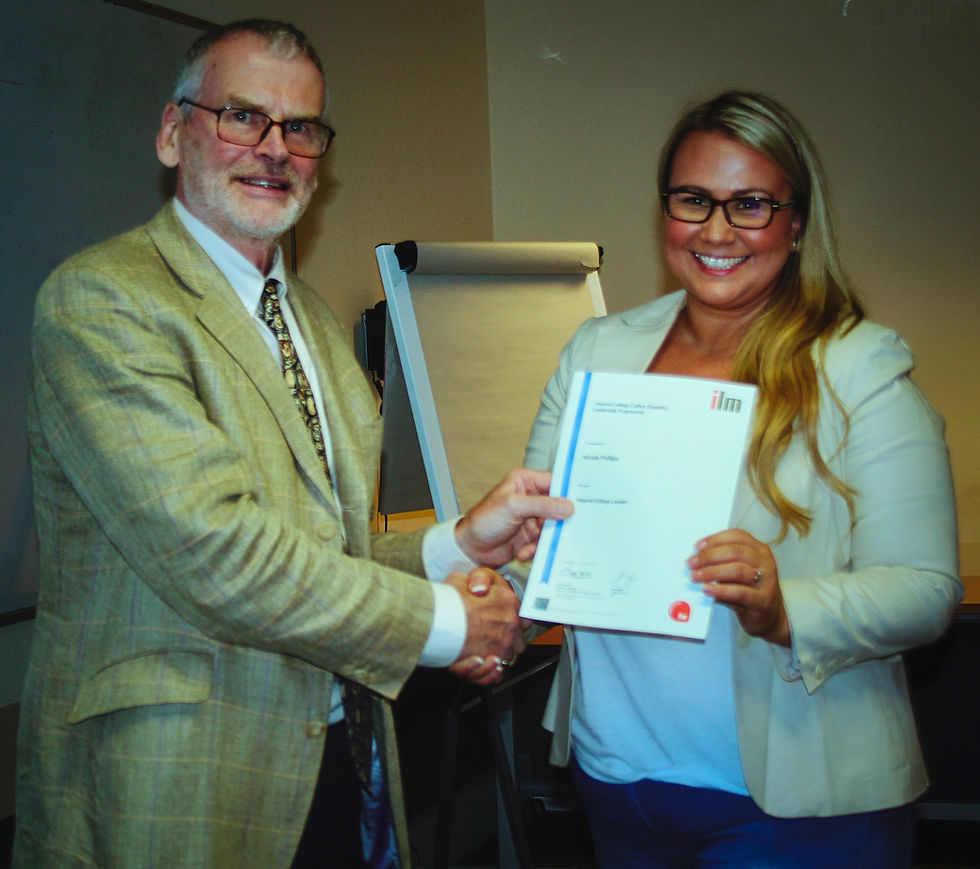Disability Discrimination at the Department for Works and Pensions
- OWS

- Mar 10, 2020
- 4 min read

I expect that many of you who saw the Monday March 9, BBC One Panorama Programme “The Million Pound Disability Pay-out” were as shocked as I was. It recounts the experience of many hundreds of disabled people employed by the Department of Work and Pensions (DWP). Many of whom had been so badly treated by their managers and colleagues that they were forced out of their jobs. So many, in fact, that the DWP had more Employment Tribunal cases through the courts in total and more cases which it lost than any other employer in the United Kingdom over a four-year period.
Let's reflect upon that for a moment. One of the DWP’s primary concerns is the support and well-being of disabled people through the provision of benefits and advice on employment. Yet, we now discover that it is the employer most likely to discriminate against the very disabled staff it employs. If it cannot treat its own disabled employees with fairness and consideration, how can we expect it to treat its disabled customers any better?
The BBC Panorama programme discovered that the DWP had lost 17 of 134 claims of discrimination against its disabled employees over the period covering 2016 to 2019. Is also paid out at least £950,000 in tribunal payments and out-of-court settlements over the same period of time.
To place this in some sort of context, the BBC reported that in comparison with the five employers who had the largest number of disability discrimination cases against them, the DWP had more cases and more tribunal defeats in proportion to its total number of employees than any of these other employers. Right now, the DWP employs 11,000 people who identify as disabled out of a total of 80,000 employees.
As a leading disability discrimination lawyer said: “To me, that can only suggest that there is something fundamentally, systemically wrong within the culture of this organisation.”
The testimonies of disabled employees who were brave enough to stand up to the Department and obtain redress through the employment tribunals merely confirms how brutal the culture at the DWP has been towards disabled staff. Each one is a story of struggle to reclaim self-respect and dignity. The money was not the main driver for this. What they all really wanted was simply to be listened to and believed.
Please remember that for each victory there would have been hundreds, if not thousands of disabled people hounded out of their jobs; bullied, fearful and humiliated into a helpless rage, silence or depression.
To be fair to the DWP, it has acknowledged this massive failing and admitted to being shocked and embarrassed when presented with those figures. This suggests to me, nonetheless, that had the BBC not highlighted this issue, they would have remained blissfully ignorant of what they were doing to their disabled employees.
The DWP claims to have both formal and informal routes via which disabled staff can raise concerns. This, of course, assumes that they feel confident enough in that system in the first place. Given the numbers of tribunal complaints against the DWP over the past four years, this is something I very much doubt.
So, what should the DWP do to rectify the situation? If I were to contact DWP tomorrow, no doubt they would tell me that they have a robust disability awareness training programme for all staff and managers in place. They have also said that they have: “Improved how the DWP manages absence and resolves complaints, as well as introducing 1,600 mental health first aiders, adding: "We know there is always more we can do more”.
At least they are correct on that last point, they can do more, much more.
Given my experience working with public sector organisations such as the DWP, I suspect that all these fine sounding initiatives will fail unless disabled staff believe they will make a difference. This is unlikely unless this group of employees feel that they are part of the solution, too. Attempting to improve the policies that support disabled staff will only work if disabled staff have confidence in them. They know better than anyone else what the problems are. They also know what the solution should be. This is because they experience the problems at first hand. This is the reason why they also know how best to improve things.
So, doing things to disabled staff will not work. Allowing disabled staff to take control of what is done and how it is done, will. And this is where they Calibre the programme comes in.
The Calibre seeks to support real transformation in the workplace for disabled staff. We do this by providing the skills and increasing the confidence of disabled staff to become advocates for change; to become leaders. First of all, it removes the, often, corrosive adversarial relationship between employee and manager. It builds trust across the whole organisation and improves the self-esteem of disabled staff. Also, the real benefit for the organisation is that it improves productivity, as well.
Calibre the only programme that thinks about the problems disabled staff really face in the workplace. It gives disabled staff the opportunity to gain control of what really matters to them. This is the ability to work in ways that suits them best.
If I were to ask the Head of Human Resources at the DWP one question, it would be whether they think they offer disabled staff this opportunity at the moment?





Comments